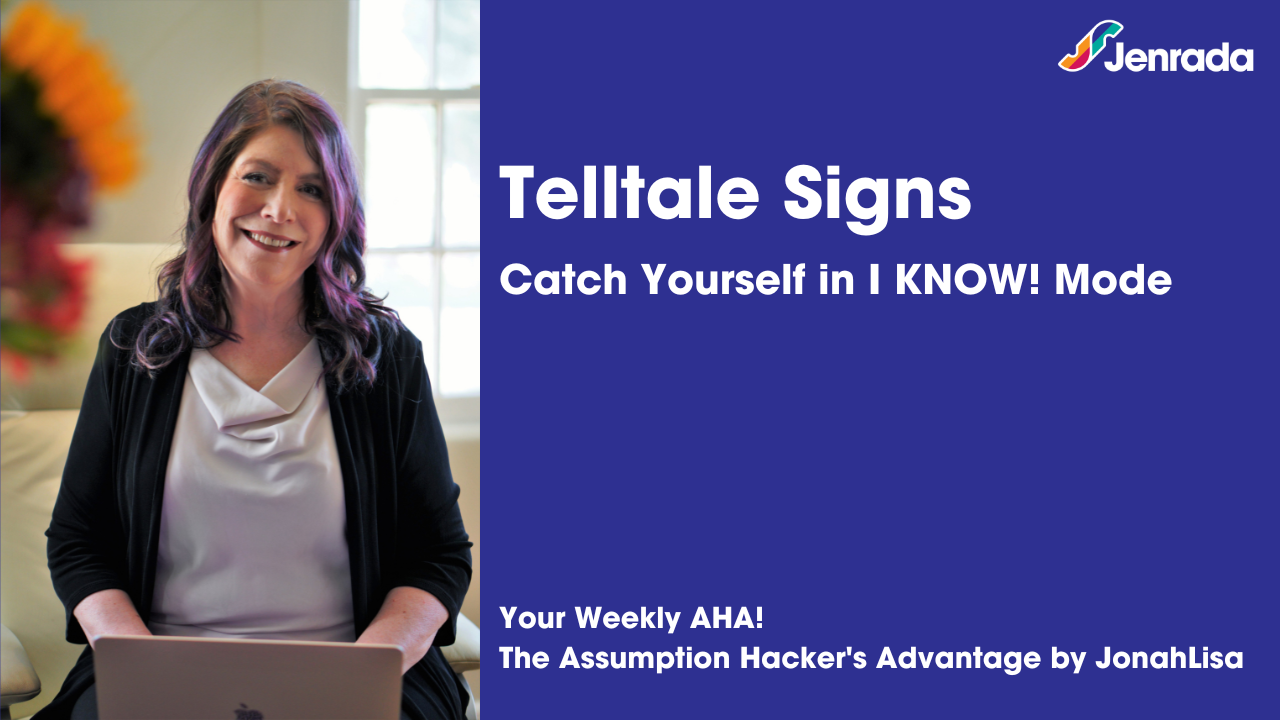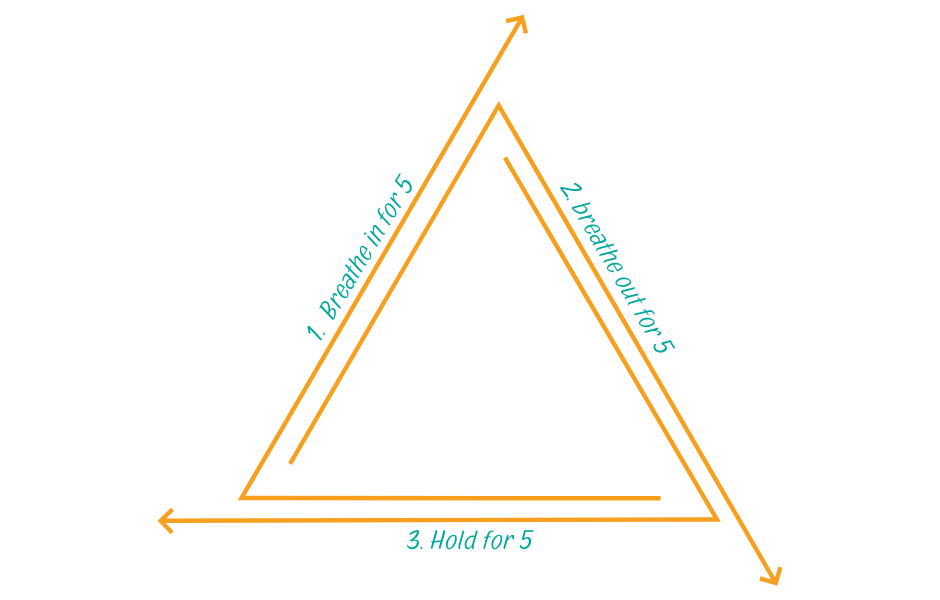
Telltale Signs - Catch Yourself in I KNOW! Mode
Feb 14, 2023A 4 minute read...
In last week’s Assumption Hacker's Advantage, I described the I KNOW! mindset. I talked about how it hinders our ability to improve the things we care about improving.
This week, I want to share some tell-tale signs with you, for when you’re smack dab in the middle of it. I also want to share some ways that you can get out of the I KNOW! mindset, replacing that "exclamation point" with a healthy "question mark". Instead of "I KNOW!", I'll teach hou how to say, "Do I know?"

Get Intentional
It is hard to recognize when you’re in the I KNOW! mindset because it is a stance that we take unconsciously. As Julia Galef said in her 2017 TED Talk, “Our judgement is strongly influenced, unconsciously, by which side we want to win.”
Flashback to the most recent Super Bowl – do you know anyone who was (and perhaps still is) in frenzied disagreement with a call made by the referees against the team they were rooting for? And they agreed with every call made by the refs against the opposing team?
The tips that follow depend on you first making an important decision: that you care about understanding what’s real more than you care about being “right”. When you make that choice, you become open to seeking and seeing signs that you have fallen prey to the I KNOW! mindset.
OK, so you’ve made the choice.
Here are some of the tell-tale signs:
- You are working furiously gathering and preaching reasons your idea is RIGHT! and you spend no time seeking reasons your view might be even just a bit flawed.
- You are working furiously to gather and preach reasons why THEIR idea won’t work or their view is WRONG and spend no time considering reasons their idea might actually work or how their viewpoint might be valid after all.
- You are brushing off other people’s reservations about your idea, without considering the possibility that they may have a valid point. The moment they utter “yes, but” is the moment you go into defense mode. You may even be getting perturbed that “they” are not wholeheartedly agreeing with you.
- Someone has just said to you, “You’re not listening!” Maybe they haven't said it in those words. But their body language and facial expression tell you they’re a bit annoyed.
When find yourself in I KNOW! mode
Take a pause and:
- Breathe deeply for a minute or two, reminding yourself that your idea or viewpoint isn’t the objective, understanding what’s real and making the situation better is. I find that a minute of intentional, slow deep breaths can be a big help.
An Exercise to Try
Imagine you are making a triangle with your breath. Go up one side of the triangle as you breathe in for 4-5 counts, go down the other side of the triangle as you breathe out for 4-5 counts, then go across the bottom of the triangle as you hold your breath for 4-5 counts. Repeat the pattern for a minute or two. It's OK to close your eyes while you do this.

- Tell yourself OUT LOUD that you may be wrong. Even more effective: take out your phone, put it in selfie mode, and look at your reflection while you tell yourself - out loud - that it’s possible you are wrong.
- Actively listen to those who raise reservations about your idea or who seem more interested in an alternative. Make it your objective to be fully attentive and to understand what the other is trying to communicate to you. Delay considering or formulating your response until after you have heard them, and until after you have communicated their point back to them in a way that they deem to be a fair representation.
- Try to go deeper to unearth the assumptions that you are making. And then challenge the assumptions to see which are true and which are not. Rather than asking yourself whether an assumption is valid, ask yourself how to prove the assumption is wrong. This is the essence of Assumption Hacking – the practice of:
- Exposing the assumptions being made
- Testing and challenging them to see if they are valid, and then
- Solving for those that are not.
Let me know what you try and how it works for you!
See you next Tuesday.
Whenever you're ready, here are a couple of ways I can help you:
- SBC Assessment. In a one-on-one session, I guide you to use the Assumption Hacking Framework to uncover the faulty assumption at the core of your Single Biggest Challenge.
- Jenrada Programs. Workshops and longer engagements that we customize to help you uplift your organization into one of aligned problem solvers delivering extraordinary results. Complete this form, reply to this email, or schedule a discovery call.
Your Weekly AHA!
Every week, receive one actionable tip from JonahLisa to help you create breakthrough in your business and life.
We hate SPAM. We will never sell your information, for any reason.
